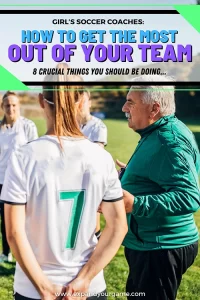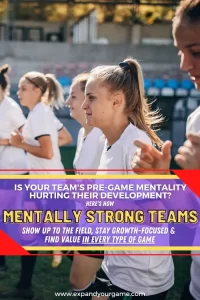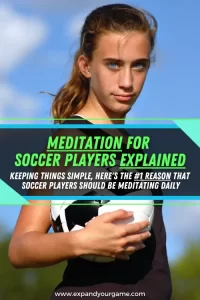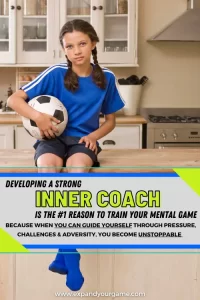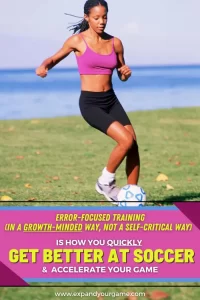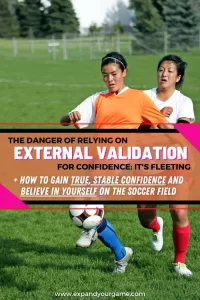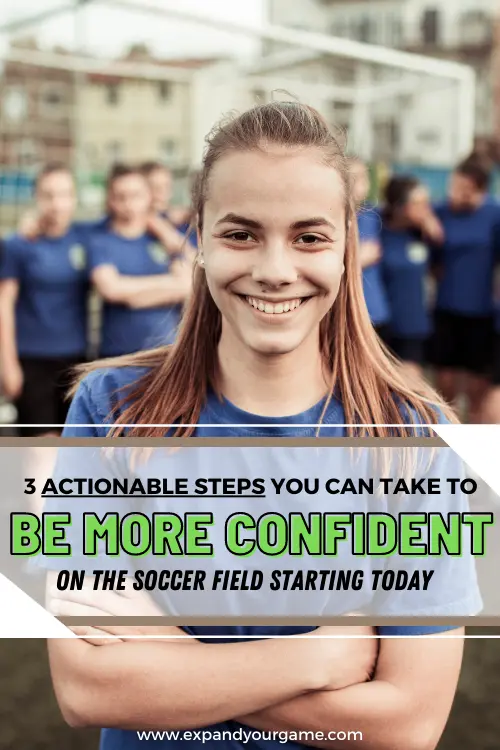
Why does it seem to take so long to get out of a low-confidence, self-doubt rut? It’s because growing your confidence is NOT EASY! No matter how many times a parent, coach or teammate says to you “you’re so great! you should be more confident!” it is not something that just happens. Confidence isn’t something you can snap your fingers and conjure up.
So, how do we do this then, how do we gain confidence on the soccer field? How to gain confidence in soccer is not just HOPING that our confidence will show up one day, it’s TAKING ACTION and working on the mental skills that will actually get you there. And that is exactly what we are here to talk about today.
{Related read: The two most important things in soccer – Intention PLUS Action}
This Post Contains:
Why do soccer players lack confidence?
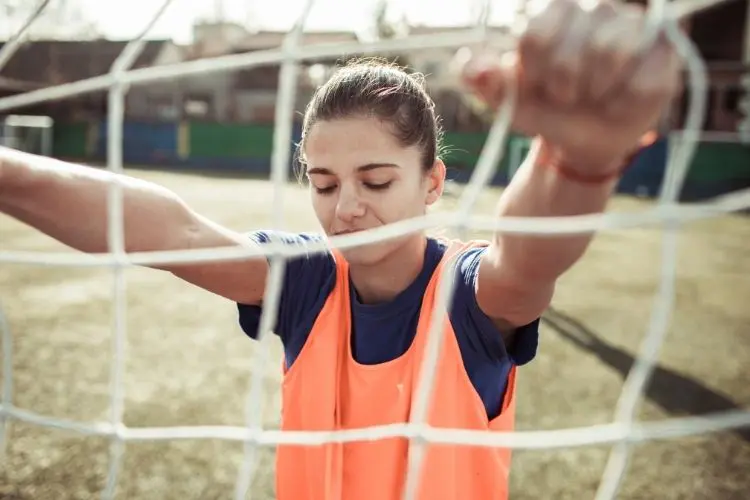
Why do I doubt myself so much?
Many things can contribute to low or inconsistent confidence. Some examples include returning to play after long injuries, dealing with toxic or unhealthy perfectionism in sports, fear of failure, pressure, nerves, a winning-is-the-only-thing-that-matters mentality, etc.
The amount of things that can impact a soccer player’s confidence levels are endless, but here we are going to focus on the one, BIGGEST thing that consistently negatively impacts soccer player’s confidence. And that is expectations. Specifically the unrealistic expectations that you have of yourself. You know, the ones that are so impossibly high that there’s no way you could ever meet them on a consistent basis? Ya, those ones.
soccer Is 90% Mental
So what are you doing to train that part of your game?
Introducing the Mindset Mastery Academy
A 10-week 1:1 mental skills mentorship experience for female soccer players
Expectations and how they relate to confidence
"Expectations are judgements and demands that you place on your performance pertaining to outcomes or results".
Tim Bennett, former NCAA women's soccer coach
Some examples of common demands that players place on themselves at soccer games are that they need to score a goal, win the game, not mess up, or not do anything dumb to let the team down. Etc. Another example illustrating this same concept, but not tied to a single game, is that many high school soccer players looking to get recruited think that it needs to be Division 1 or bust. Meaning that they feel they need to make the top division of college sports or else they have failed. This is a demand that they are playing on themselves pertaining to outcome. And these types of demands WRECK CONFIDENCE.
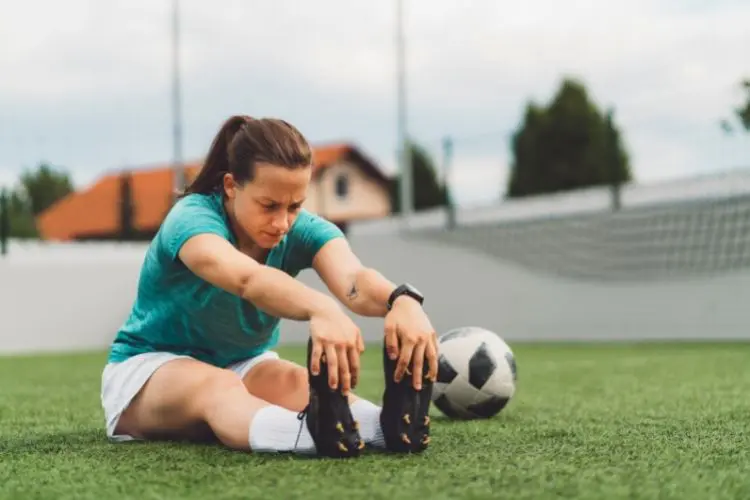
{Related read: Here’s the truth behind WHY GIRLS QUIT soccer}
Not being able to live up to your own standards of perfection on the soccer field also can cause detrimental thinking and negative self-talk, which further lowers confidence. Players are often their own worst enemy on the soccer field, they self-sabotage their performance by letting negative, detrimental thoughts run rogue in their head.
Here are some examples of self-defeating mentalities that can get in your way and hurt your game. Which of these do you experience?
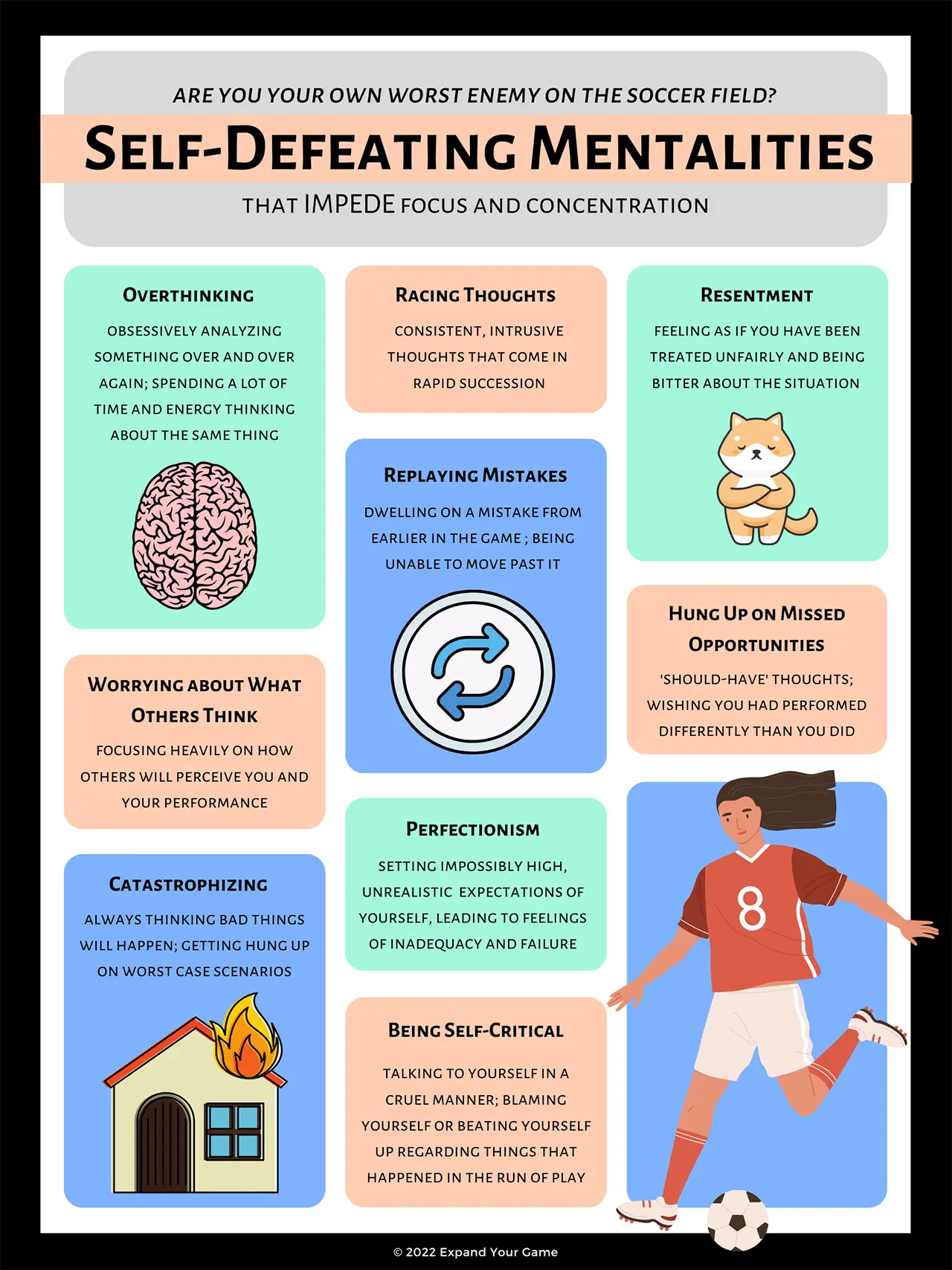
Pursue self-improvement, NOT perfection
One of the main reasons soccer players lack the ability to play confidently, is that they have been conditioned to thing that success is only tied to outcomes. And then when they don’t achieve the specific outcome that they were demanding of themselves, they feed bad about themselves because they fell short of their expectation. This impacts confidence IMMENSELY.
How to gain confidence in soccer is to SHIFT YOUR EXPECTATIONS to focus onto something that you can fully control. How to gain confidence in soccer is to choose to attach your confidence to the process of self-improvement and create new expectations for yourself that have to do with learning and growing instead of the result or outcome.
"Expectations need to be the pursuit of improvement, not the demand for perfection."
Tim Bennett, former NCAA women's soccer coach
You do NOT have to score a goal every match in order to be successful that game. There’s a million other things you can do on the pitch (tasks you can execute, runs you can make, opportunities you can create, details you can focus on, THINGS YOU CAN CONTROL) that would be immensely impactful to the game and helpful to your teammates.
These things absolutely MAKE A DIFFERENCE on the field and positively impact the game. Focusing on these things that you can control, instead of on the outcome that you CAN’T, not only helps you improve as a player, but it is how to gain confidence in soccer.
Focusing on the process of improvement is how you do good things for yourself and your development. And when you do good things for yourself and your development, you FEEL GOOD. And when you feel good about yourself and your game, you have more confidence.
Extra practice doesn't always guarantee confidence
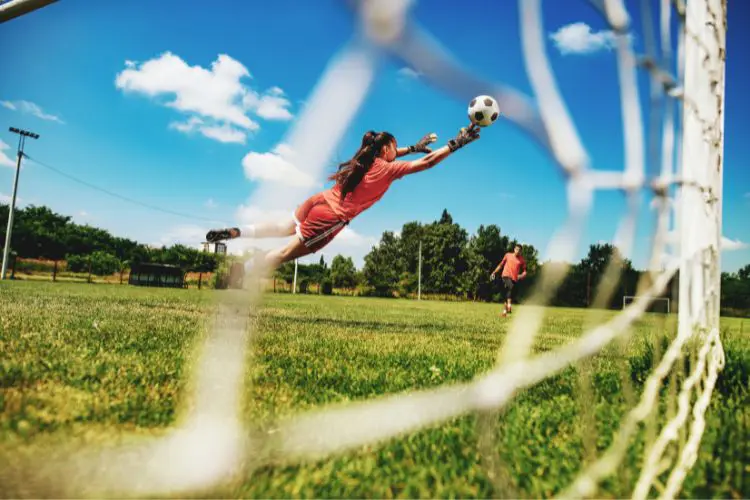
No matter how much extra training you do, you cannot control the referees, the opponents, your teammates, your coach, etc. Things that all impact your ability to meet the expectations of scoring, winning, not making mistakes. They impact it because they can get in the way, they can make decisions that change things for you, THEY ARE THEIR OWN PERSON and you cannot dictate how they behave.
You could take the best shot of your life and the goalkeeper might just also be having the best game of THEIR life and make the save. Does that mean your shot wasn’t good? Absolutely not. It just means you didn’t score. You can be disappointed that it didn’t go in, but letting your self-worth be impacted by something that is outside of your control is dangerous territory.
{Related read: The danger of relying on EXTERNAL VALIDATION for confidence}
Mistakes are part of the flow; adjust and keep going
All the preparing in the world won’t do you any good if your expectation of yourself is to ‘make zero mistakes’. It’s simply not possible to play a soccer game perfectly. Even the professionals and the super stars make mistakes in EVERY match, even in games where they are playing REALLY REALLY well.
Confident players are players that still make mistakes. The reason it doesn’t impact their confidence as much is because they don’t have the expectations of themselves to play perfectly and not make errors. They DO have the expectation of themselves to work their hardest and push themselves to the edges of their ability. By nature, playing this way WILL RESULT IN MISTAKES. These players understand though, that it is part of the flow of the game, and when errors do happen, they simply adjust and keep going. Whether they passed the ball a little too short, didn’t connect with their teammate on that cross, or misread their tackle, they get up and keep going.
Grow your confidence through preparedness.
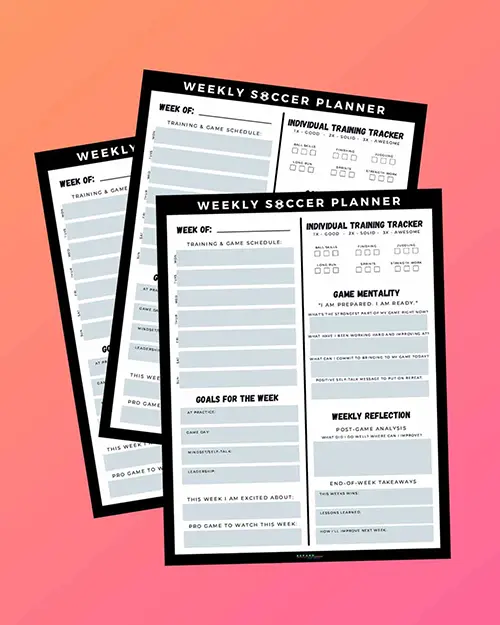
Subscribe to our email list to
Get your FREE Weekly Soccer Planner!
We respect your privacy. Unsubscribe anytime.
3 steps for how to gain confidence in soccer
Confidence issues are so deeply engrained in our psyche that we need to approach them with an actual, tangible plan, we can’t just wish them away. Like we said at the beginning, intention PLUS action. In this case action means reflecting on, analyzing and consciously making changes to the way we are currently doing things.
STEP 1: Reframe your expectations
This self-reflection work requires an extreme amount of self-awareness, honesty and self-compassion. Yes, it’s going to be hard, but YOU CAN DO HARD THINGS. Here’s an example of how we can use self-reflection and reframing to help us work towards gaining more confidence in soccer:
Old-expectation – Today I need to score a goal we we need to win. I am only going to be able to feel good today if I do these things and do not make mistakes.
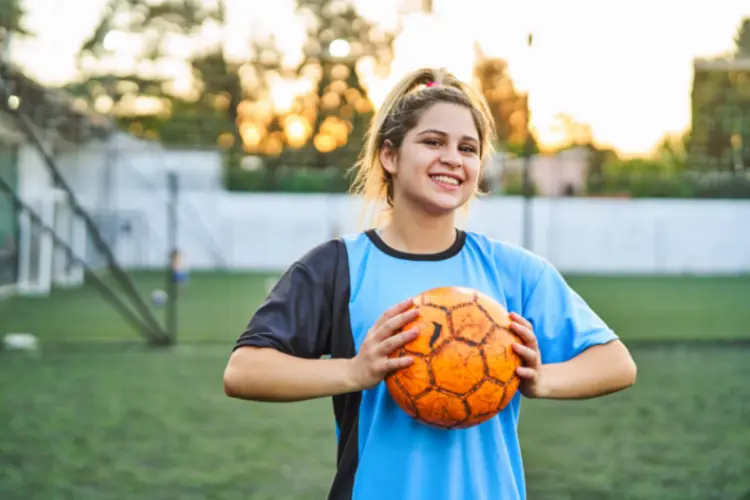
STEP 2: Set manageable game day objectives
Controllable objectives are in-play goals that you can use to gauge your success at a game. They are manageable, specific actions that you HAVE THE POWER to do in a game, no matter what everyone else is doing. They are conscious choices that you can always make and whether or not they happen is up to you. They are focused on the PROCESS of self-improvement, not on the outcome of the game or on eliminating mistakes
Your objectives should be specific things that are challenging, but achievable, no matter the scoreline. Start by asking yourself what ACTIONS could you perform this game that would leave you feeling good about your performance afterwards?
- make runs off the ball, create space for teammates to play into
- pressure the ball immediately to take away opponent’s time and space
- on every throw-in, use that brief pause to scan and gather information
- take my first look forward and take space on a dribble if I have it
- try a 1v1 move at least 1x each half
Grow your confidence by
Redefining winning on game day
Subscribe to our email list to
Get our free 'controllable objectives' worksheet
We respect your privacy. Unsubscribe anytime.
STEP 3: Use instructional self-talk
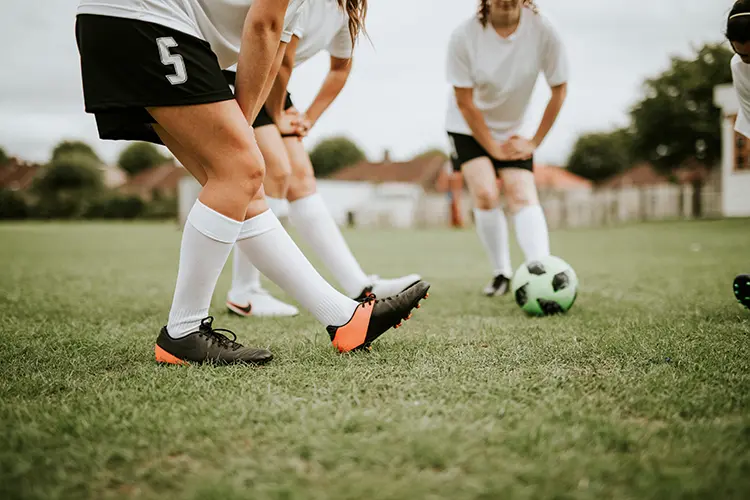
Instructional self-talk is non-judgmental thoughts that you tell yourself. Instructional self-talk doesn’t have a positive or a negative implication, it’s simply a set of instructions to help trigger you to take action and DO your controllable objectives.
- giving your brain something to focus on that is good, useful and constructive
- helps keep the self-defeating thoughts at bay during run of play
- helps keeps you in the present moment and focused on the game
A confidence exercise: Self-talk in action
Say it over and over, especially as you find yourself getting distracted by emotions, feelings of pressure or anxiety, or missed opportunities and mistakes. Use instructional self-talk like a mantra, something to center you and bring you back to the present moment.
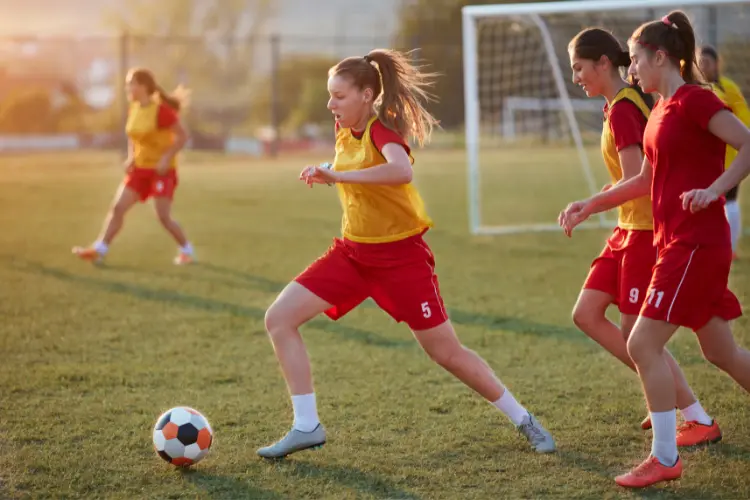
Which MENTAL SKILL is Your Strongest?!
Accountability?
Resilience?
Confidence?
Situational Awareness?
Self-regulation?
How to gain confidence in soccer
- Reflect + reframe: become aware of what unrealistic expectations you have of yourself and work to set new ones based on controllable pieces of the process
- Set game day goals: set controllable objectives that are achievable no matter the outcome, then go out and DO THEM (because remember, you are fully in charge of whether they happen or not)
- Use self-talk to help execute: use instructional messages to yourself to help you succeed in those objectives and stay focused on the task at hand

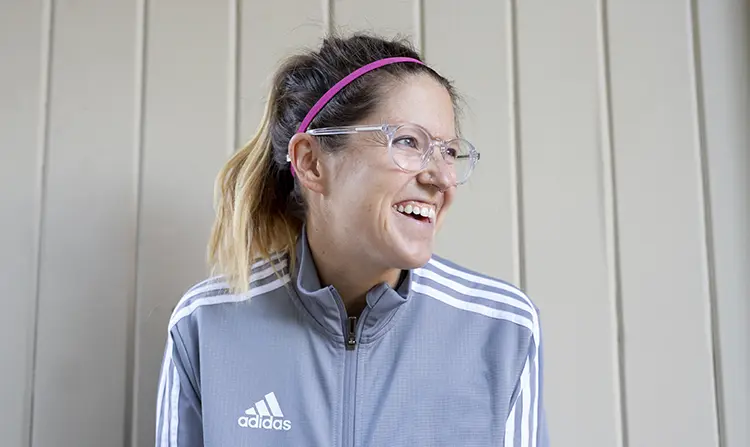
Hi everyone! I’m Jenn and I create content to help female soccer players and coaches maximize individual and team potential by developing healthy mindset skills. Join other subscribers and sign up for the newsletter for all my best tips and advice!
We respect your privacy. Unsubscribe anytime.

